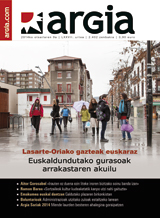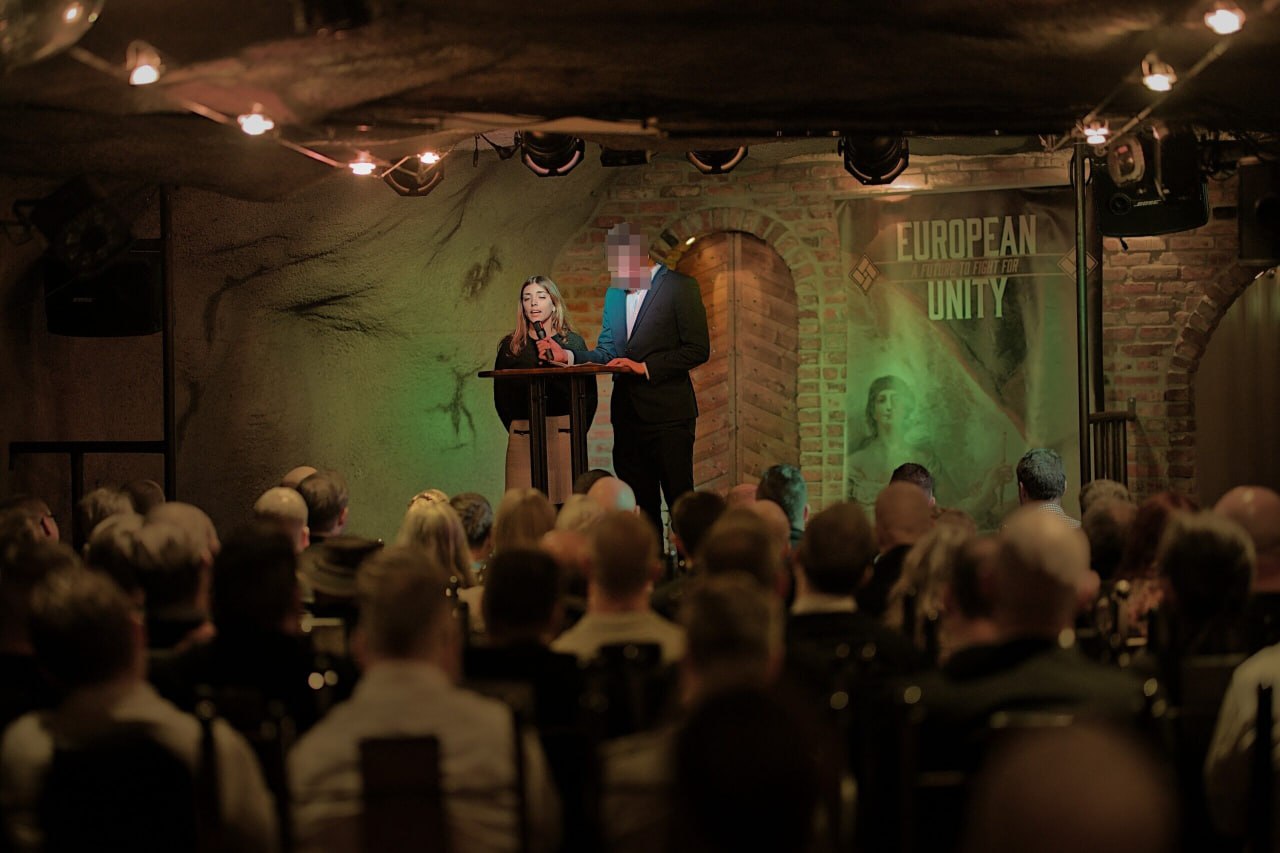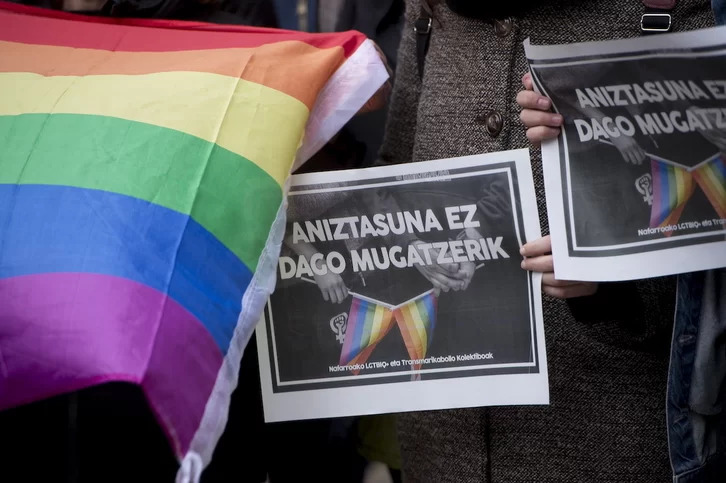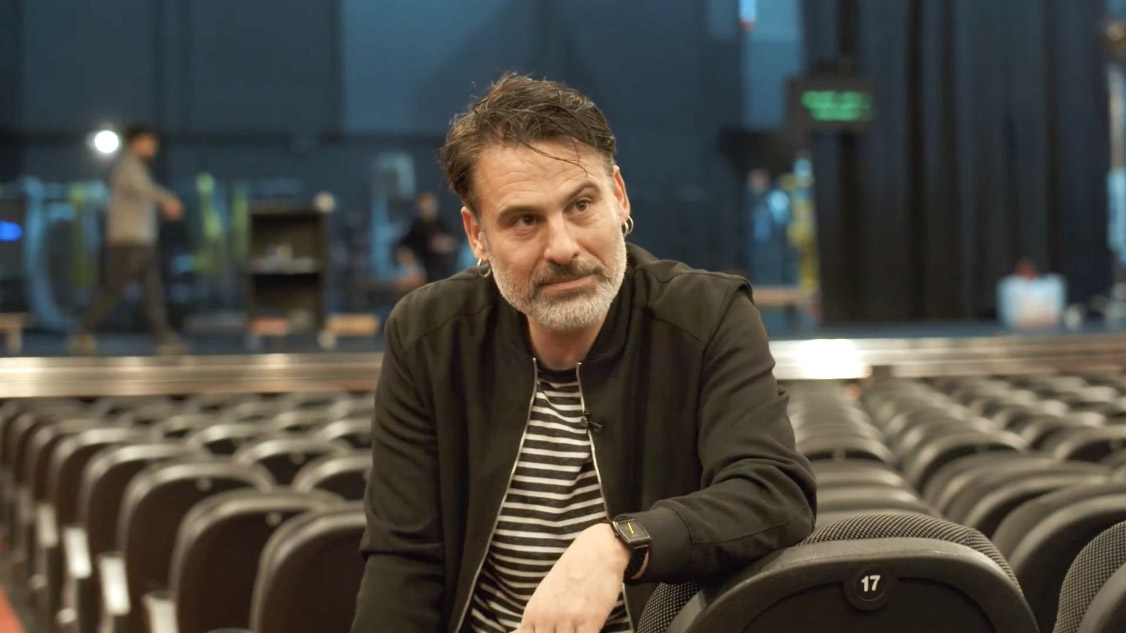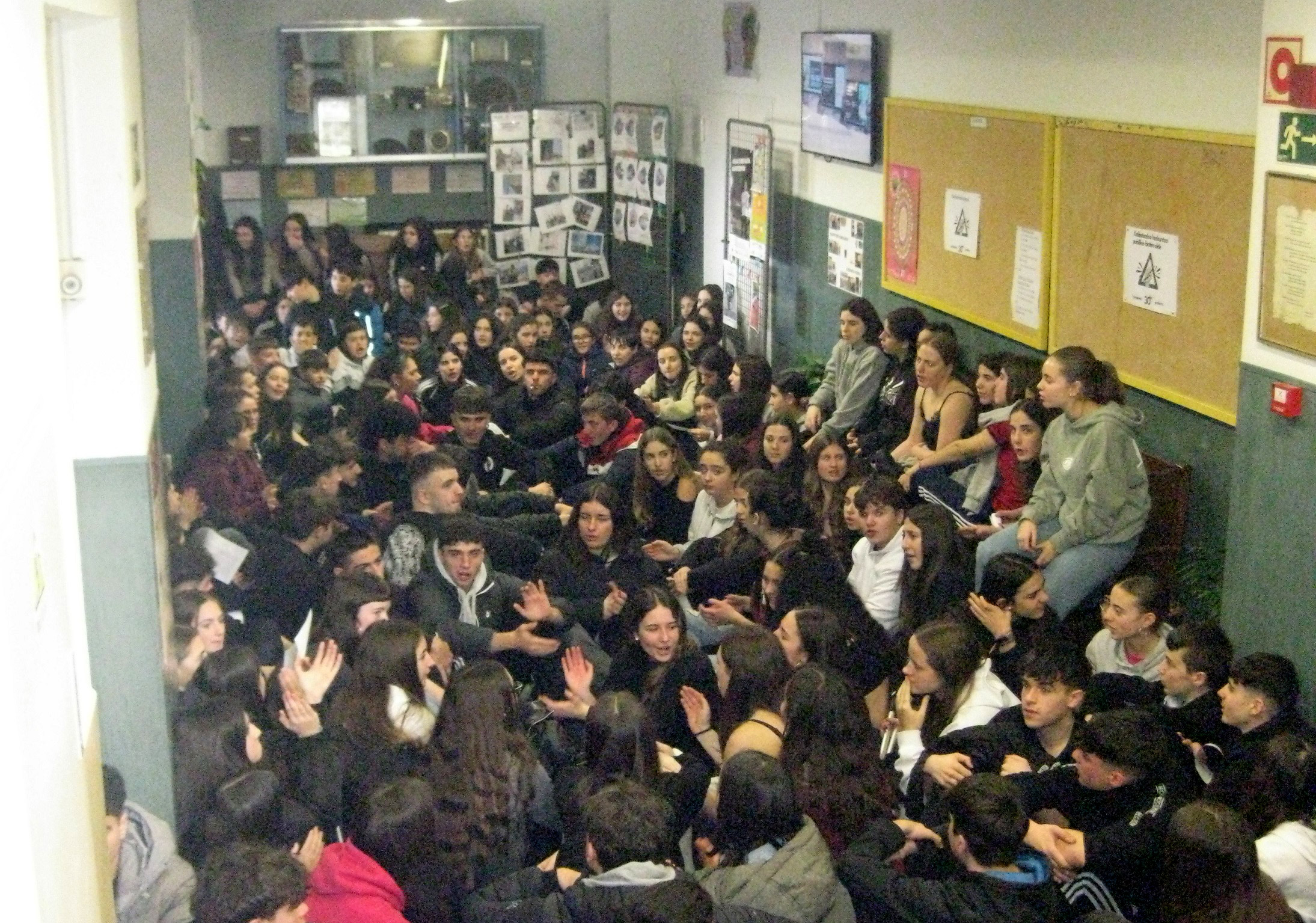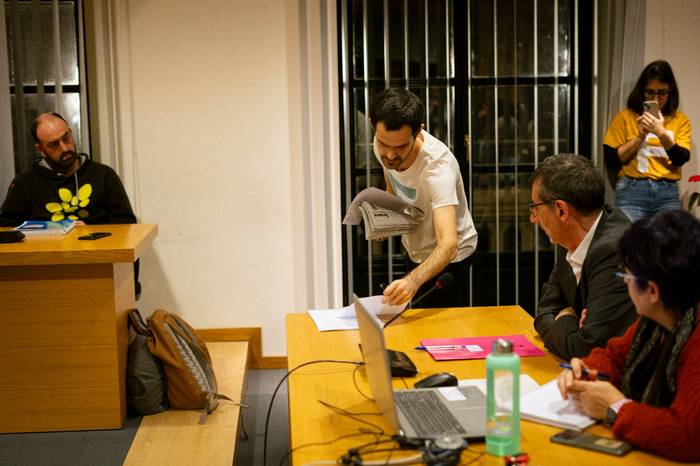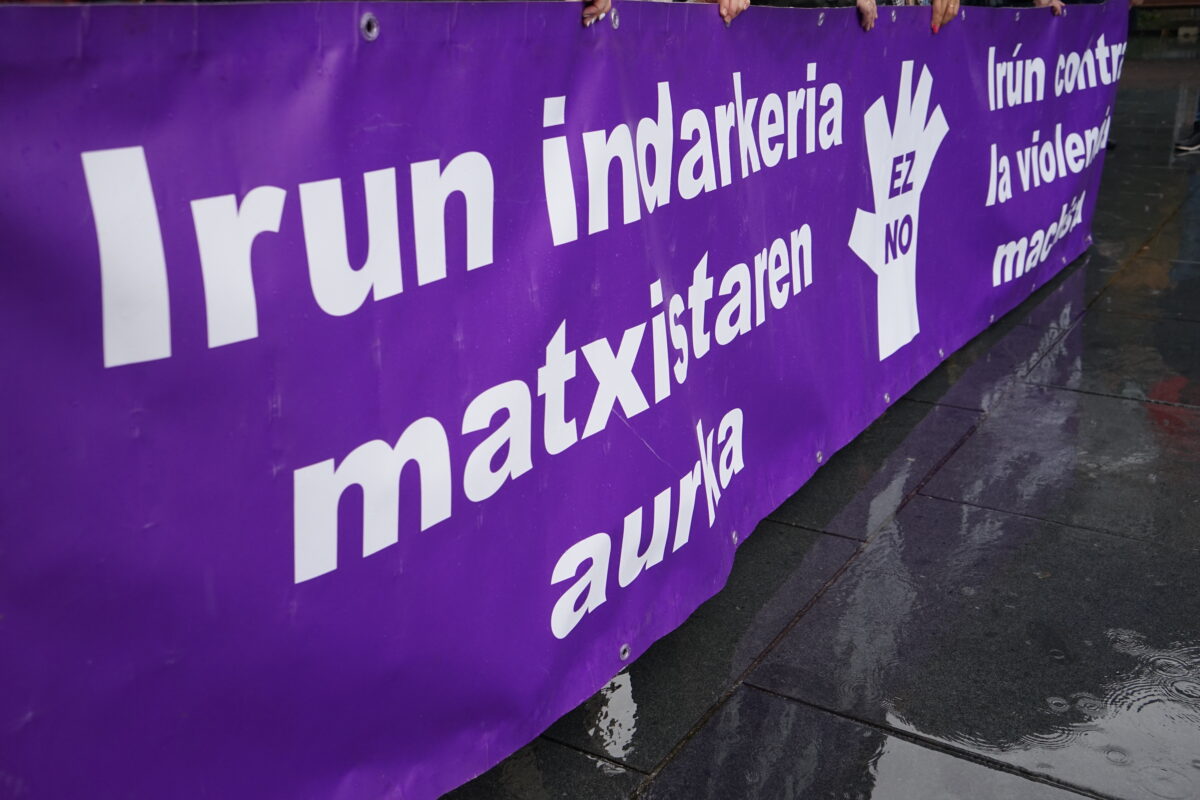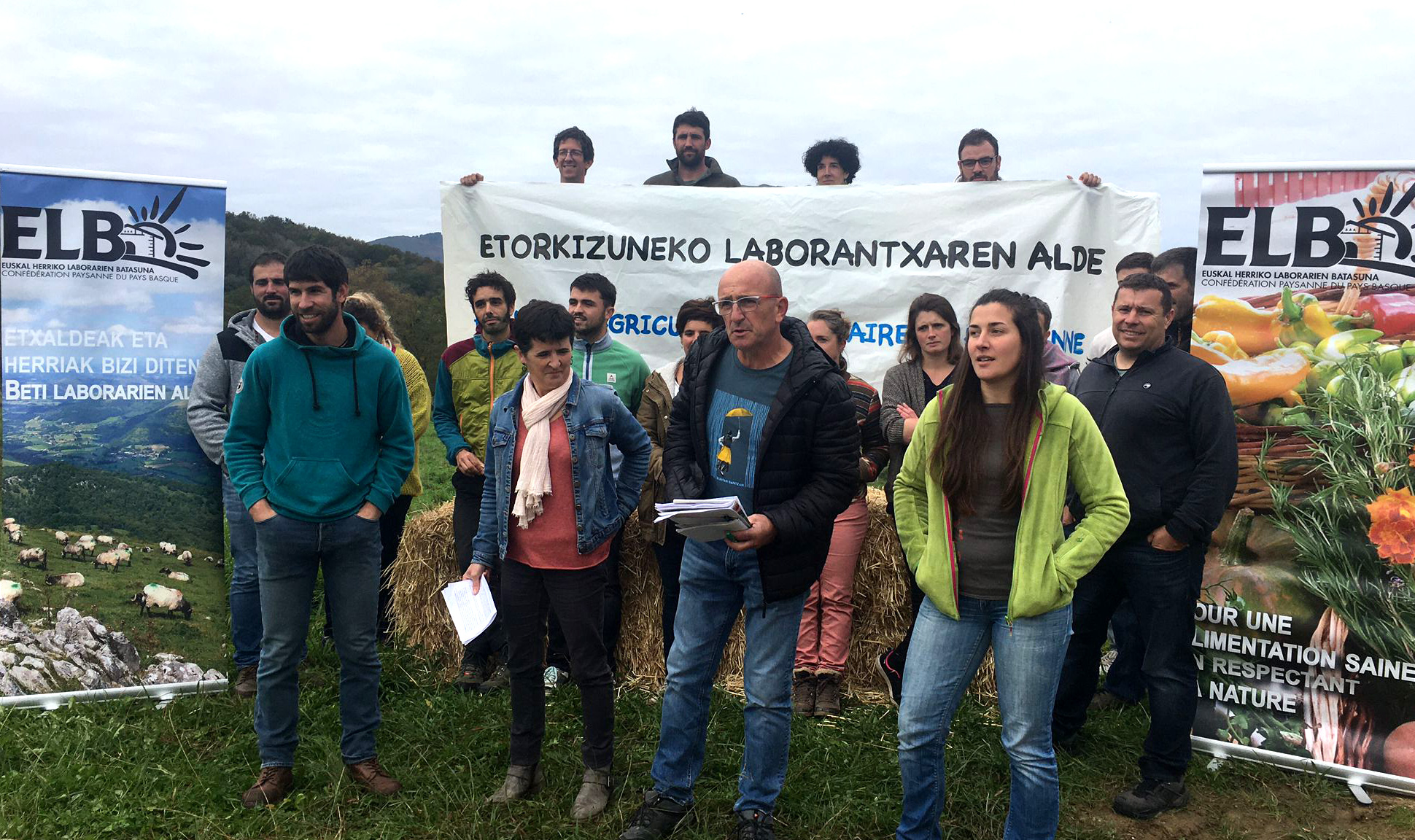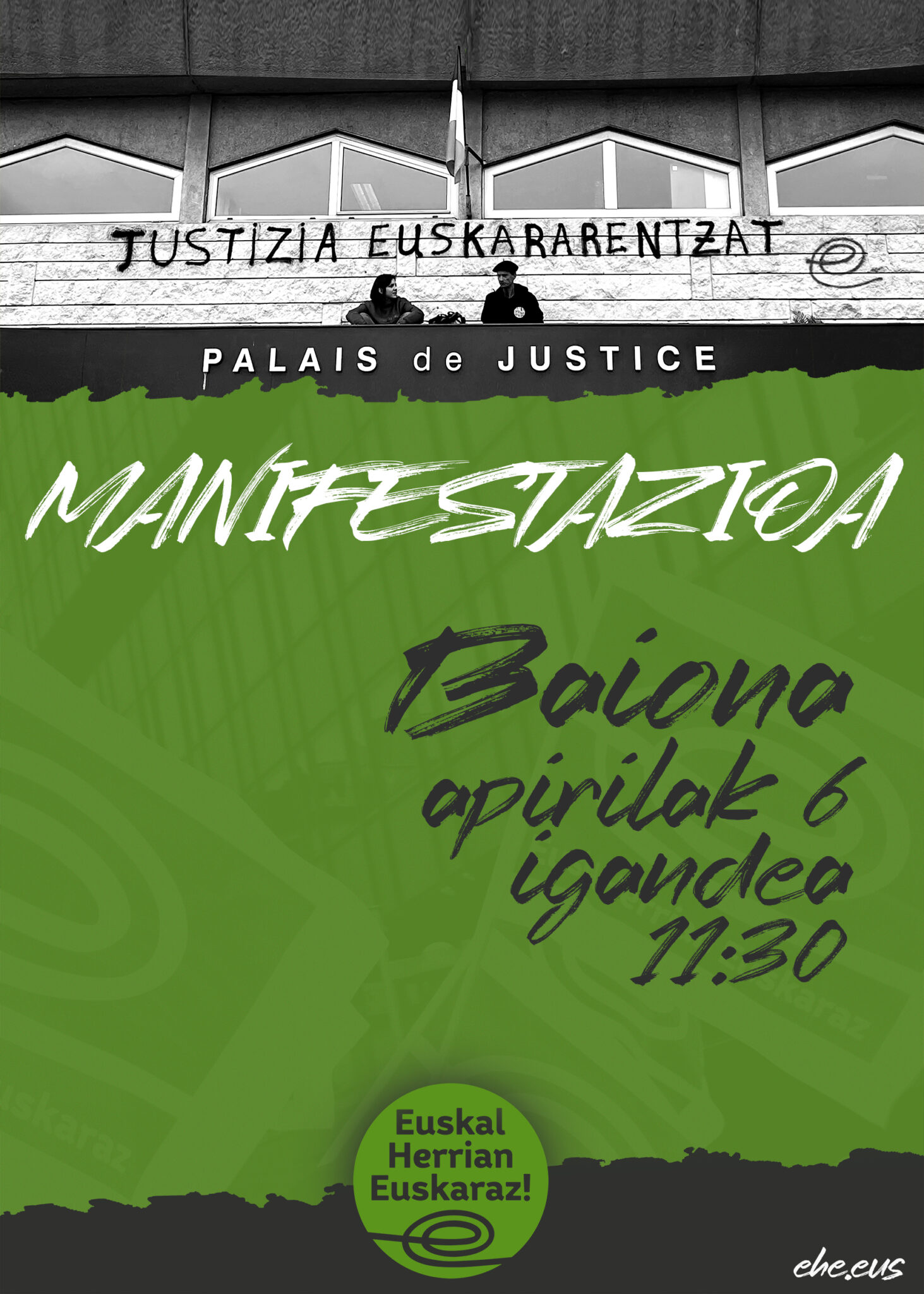"We have forgotten the public and its diversity"
- Although Ramón Barea (Bilbao, 1949) is considered an actor, he is often a writer, producer and television director, as he is well aware of all the activities of his trade. He has participated in over a hundred films and has worked with renowned filmmakers. We've caught him back from Madrid. In its Centro Dramática, Comedias Bárbaras, in Valle-Inclán, represents for three hours the central role of the tragedy and fills it daily. As always, he spends the little time remaining in the hall Hall 6 in favor of the theater.
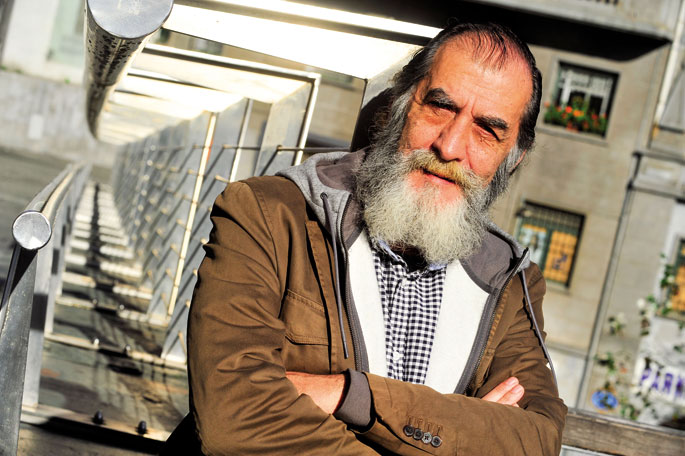
Reading his biography, I am struck by the fact that you were a little bit of a bulldog in the Plaza Nueva de Bilbao. What the hell is a tormenting dog?
Ha ha ha ha ha ha! My father was very fond of bulls and often led me to see Firefighter Torero. That's why bullfighting was fun for me. They would take me to a hairdresser at Plaza Nueva to cut my hair, and the hairdresser, my father's friend, would make fun of me for the hairy pussy I had behind me. I played the dogs of Plaza Nueva with montera and hidalgo that the Magi brought me. It was vocational...I
have never studied at Actors Studio or in the famous theater schools and I take advantage of my childhood as a resume. I've also been an acolyte.
Now seriously. How have you received the National Theatre Award?
It was a great surprise. At first I thought somebody was joking, because I don't have a profile for that, I'm not the latest fashion actor or a new face. It's OK, because I've received the prize for being an "integral actor," because they've awarded a whole trajectory, and that's why the people around me have celebrated it with me. It's not the brightness of the moment, and prizes often have it. I received it with joy. In addition, the prize coincided with the premiere of the work Comedias Bárbaras I am celebrating in Madrid. This work has also been a prize in itself. Two days before the premiere, I got a call from the Ministry of Culture, it was a crazy week.
You will have agreed on so many actors, directors and colleagues who have accompanied you along the way...
The actors of my generation have always spoken in the first person of plural. We use the mestatic plural: “We have done this.” Mine has always been teamwork. I've had a lot of relationship with the collective, and that's why I think that along with me, they've rewarded the work of many people.
You've participated in over a hundred films in the movies and you've worked with many filmmakers. Do you feel that together you have written golden sheets of local film?
I feel lucky to have participated in so many films, I have never had agents or presenters to sell me. And the truth is, I've never stopped, I've always had work, and I've worked on films that have been seen a lot, many of them awarded ... At first they were short films, and I always believed that film was going to be the last. But they would call me back, and who had to tell me, those directors, who would then be of great projection ... So we had a lot of questions in mind, what is the Basque film, what kind of film you have to make... But all of a sudden, the young principals started to appear, not one or two, but a lot of them. Although the institutions here intended to support the film made in the Basque Country, they could not believe it was one of them. So there was no film school, we organized that struggle on our own. In my case, too, I've always been totally self-taught.
Still, you are an actor coming from the theater. It started in the 1970s with Cómico de la Legua, then with Karraka. Then, they began to do the first sessions to take the theater out of the theater, organizing the functions in the workshops that were in strikes or enclosures.
When you're 20, you get the impression that everything you do is very important. Live that moment in front and back as if there was nothing. If you take that idealism into the world of theater and add it to that era of great social conflict, the final years of Franco, that theatrical activity clearly becomes a militant activity. On the other hand, in society there was a desire that pushed you to be part of an idea, project and collective initiative, a matter of resistance.
Did you have theater as a tool to change the world?
The actors of my knee made it clear that at the time the theater had a clear function... We were inventing the theater of Euskal Herria, always resorting to our ancestors, and then the only thing I had done in the Basque theatre was the shepherds. I remember the meeting I had with Jorge Oteiza. He said that the key to the Basque theatre was in the pastoral ones, and that, like the pastoral ones, the Basque theatre had to be circular. And so we were for a long time looking for the roundness of the Basque theatre, ha, ha...
Afterwards, the theater at the time has been despised, because it smelled of demand and struggle, because it was not aesthetically beautiful, they wanted spectacular decorated and great names. And people appreciated Cancun's travel and cooking more. We are now reconsidering theater, music and art in general. We need closeness to the viewer.
Is public opinion important now?
The economic bubble has been a cultural bubble. There has been widespread belief that everything is possible. All of a sudden, the best musicians of the moment have been brought, the large and expensive international theater companies... And we've forgotten the public, the society, their diversity. In fact, viewers are sometimes talked about as if it were a trade, but viewers and looks are multiple. Now it seems that you have to listen to the public. There is a long-lost desire, an attitude, on the part of the public and the creators. People are fed up with advertising, marketing campaigns, etc. He doesn't want rockets.
In the
world of theatre, the bond with the public has been lost a lot. The institutions have invested in theatres and infrastructures, but under no circumstances has it been invested in public. There's been money for programmers to be able to program whatever they want, but the audience is somewhere else. There has been a great deal of dependence on public money. However, I am optimistic, and, as I say, it seems to me that the collective experience of the theatre has returned. People are tied to the computer, to the ipad or to loneliness and, interestingly, theatres are being refilled. That's what I see in Pavion 6, that society is looking for a shared experience.
How do you see the scene of Euskal Herria?
I think creators want to leave us out of cultural management. In the infrastructures that have been created, there has never been a creator who has led or managed such infrastructure. They've always been considered a municipal feud in which a single person, an invented culture expert, decides what to do. The professionals of music, dance or theater have left us out. That space needs to be restored.
A clear example of opposition: Hall Hall Hall 6.
Now creators are not waiting for anyone, and they're inventing new spaces and shapes on their own. At first, the founders of Hall 6 believed that a room of this kind was not necessary, as there are several rooms in Bilbao. But nowhere can I make the project I like, or the time I want. On the other hand, it is valued by criteria of economic accessibility, but there is another concept that must be taken into account: artistic profitability, that is, doing something to a group of people. We have more and more public, and that is the result. A new room doesn't take it off, he adds. It offers great job opportunities. And it's the public that feeds and supports this space economically. Not depending on the administration gives you freedom.
Manager, producer, screenwriter, director, actor... You've worked all the fields of your trade. How do you define yourself?
As an actor, it's clear. I've done a lot of things, I know my trade well, and I've done all of those things because at the time they were necessary. I've also learned a lot, I've realized what I don't know. I had no intention of doing so, but the fact that there are so many jobs gives you a broad view of this trade, and that seems to me to be fundamental. Today, people are betting on specialization and it is not well seen to walk here and there. I am an actor, in its broadest sense, creator.
What about Basque cinema? There is little, and most of the time they are productions directed to the smallest.
I don't know Euskera, and I get a lot of anger about that lack of skill. In the time of Cómico de la Legua it was clear that the Basque theatre should be made in Basque, and many of the works of that time were bilingual, while the narrator spoke in Basque, the actors spoke in Spanish, but it was useful for the time. There was will, there was political attitude. I met a boy who wrote theatrical texts in the tertulias of the cafeteria at the Arriaga Theater, whose name was Bernardo Atxaga. He and Joseba Sarrionandia were my professors of Euskera, I got to 5th of Euskaldunization... Sometimes I have been offered some role in Basque, but to make myself wrong, I prefer someone else to do it, because it seems to me that I walk in traps. Unfortunately, our generation has grown in Spanish.
There is a will and
subsidy in the institutions so that the original language of the films is in Basque. But then they start making accounts, and most of them have seen the Spanish-language dubbing of that film. It's amazing and sad, but there's the struggle. Perhaps you have to invent something that is attractive, that is, something that you cannot fail to see in Basque. In the theater there are many militants in favor of this, who make their cultural result in Euskera, and in this struggle are Ander Lipus, Patxo Telleria and Mikel Martínez, among others. But the struggle is disappointing on many occasions, perhaps because those who drive the theatre in Euskera do not have sufficient means to do so. In Basque or nothing, no translation. That presence must be guaranteed, and that, as I said earlier, can be achieved by investing in the public.
Is the world a great theater?
Yes, no doubt. But the politicians we have are very bad actors. In their view, they have acted in favour of us, they say that they protect our interests. The worst thing is that we, the public, do not trample on the ground! Before, when a theater play was very bad, the audience kicked the ground or went away. We have lost that chance of kicking, and we have to reclaim and reclaim that tradition. And, for it to appear in the newspapers’ chronicles, “Doe’s speech was kicked and his words silenced...”. The spectator is serene, submissive, despite an ugly monarchy and the corrupt politicians who govern.









